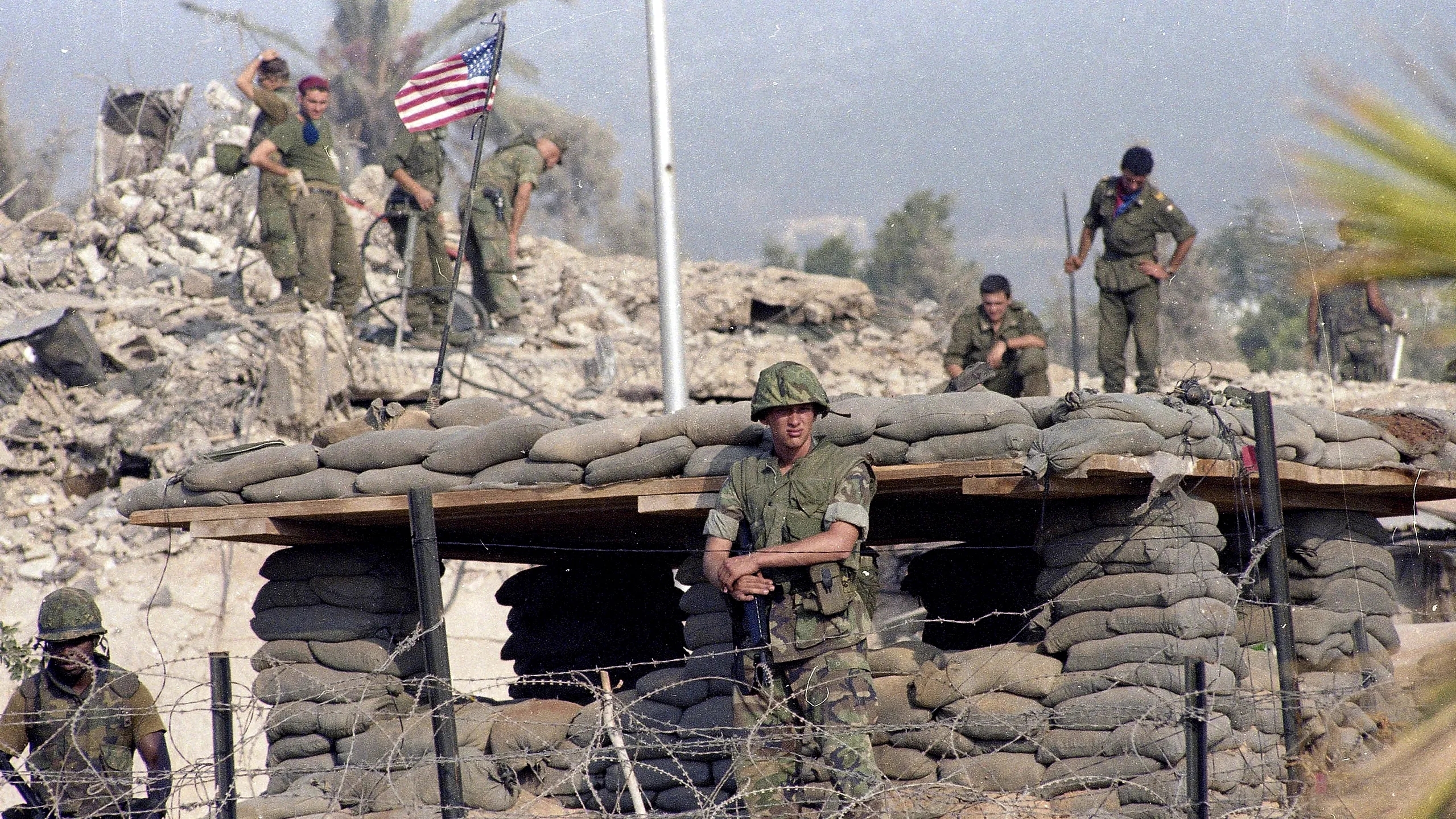Around 0630 local time 39 years ago today, Lebanese Islamic Jihad detonated a truck bomb in the Beirut International Airport barracks of 1/8 Marine Battalion Landing team killing 220 Marines, 18 Sailors and 3 soldiers and wounding another 128. The explosives used were estimated to be the equivalent of 21,000 pounds of TNT.


About ten minutes later, another truck bomb was detonated at the Drakkar building, where a French contingent was stationed, killing 58 French paratroopers. The two bombs also killed 6 Lebanese civilians.
Both countries troops were in Lebanon as part of a multi-national peacekeeping mission during the Lebanese civil war. As a peacekeeping mission, there were strict rules of engagement in place.
- When on post, mobile or foot patrol, keep loaded magazine in weapon, bolt closed, weapon on safe, no round in the chamber.
- Do not chamber a round unless instructed to do so by a commissioned officer unless you must act in immediate self-defense where deadly force is authorized.
- Keep ammo for crew-served weapons readily available but not loaded in the weapon. Weapons will be on safe at all times.
- Call local forces to assist in self-defense effort. Notify headquarters.
- Use only minimum degree of force to accomplish any mission.
- Stop the use of force when it is no longer needed to accomplish the mission.
- If you receive effective hostile fire, direct your fire at the source. If possible, use friendly snipers.
- Respect civilian property; do not attack it unless absolutely necessary to protect friendly forces.
- Protect innocent civilians from harm.
- Respect and protect recognized medical agencies such as Red Cross, Red Crescent, etc.
The Marines on guard on that fateful Sunday were in compliance with rules 1-3 and did not have time to fire on the truck as it sped to the barracks.

The blast lifted the building, shearing the 15″ diameter support columns, and the building collapsed on itself. The explosive mechanism was a gas-enhanced device consisting of compressed butane in canisters employed with pentaerythritol tetranitrate (PETN) to create a fuel-air explosive.
Recovery efforts began almost immediately. Marines not billeted in the BLT building started removing debris and searching for survivors and bodies using whatever they had at hand. Engineering units brought in some heavy equipment and a local Lebanese contractor brought a 40 ton crane from a project elsewhere on the Airport to assist in moving large slabs of concrete. As the surviving Marines dug through the rubble, CH-46 helos from HMM 126 were medevacing wounded to the USS Iwo Jima and naval medical personnel were triaging and treating the wounded.
The last survivor found during the recovery effort was LTJG Danny G. Wheeler, Lutheran chaplain for BLT 1/8.
Neither the US or French would retaliate in any serious way. The final Marines supporting the MNF would leave Lebanon on 26 February 1984. An enhanced Embassy guard of 100 Marines would stay until late July 1984, as the US Embassy in Beirut closed.

